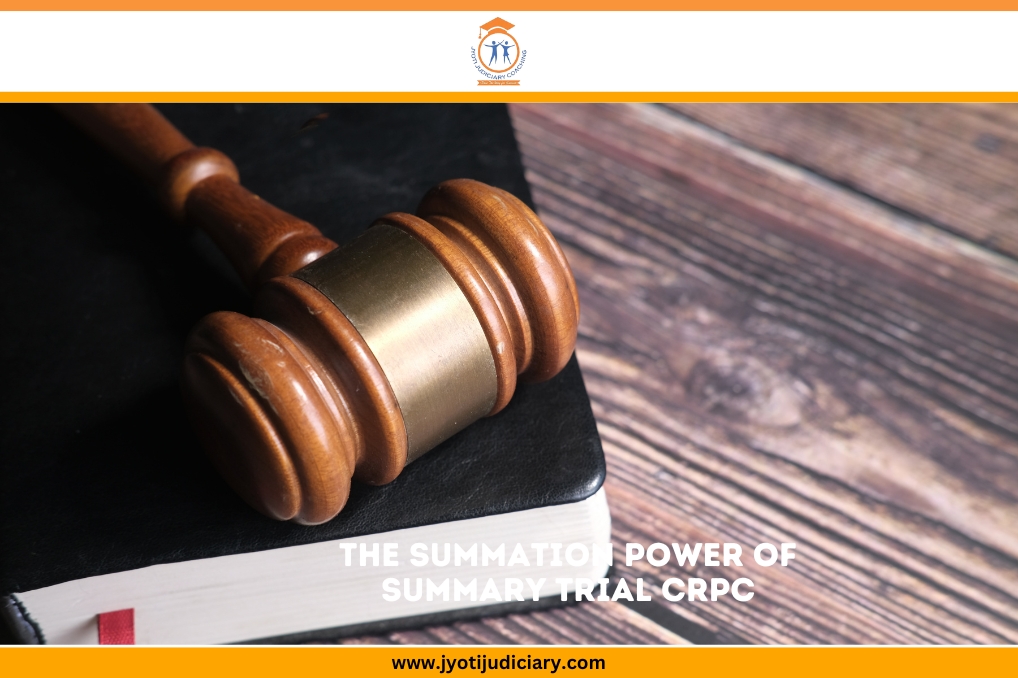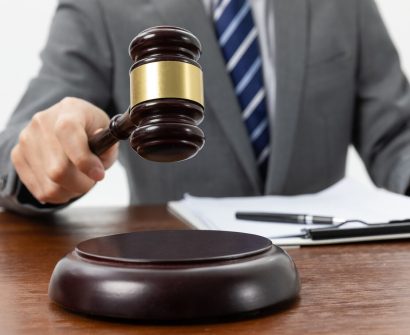
In the context of the criminal justice system, cases have to be resolved promptly in order to ensure the swift execution of justice. Of all the procedural procedures at games, the Criminal Procedure Code’s (CrPC) Summary Trial distinguishes out as an effective means for speedy adjudication.
Trial in CRPC: Types
There are various types of trial under crpc:
In the adversarial legal system that exists in Nevada, the State (Prosecution) bears the primary responsibility of establishing the case against the accused. Until the accused is shown not guilty beyond a reasonable doubt, the accused is considered to be innocent.
In accordance with the CRPC, trials are classified as:
- Sections 225 to 237 of Chapter XVIII: Session Trial crpc
- Trial by Warrant Chapter XIX, Sections 238-250: warrant trial crpc
- Sections 251-259 in Chapter XX: Summons Trial crpc
- Sections 260-265 of Chapter XXI: Summary Trial crpc
What is a Summary Trial?
- According to the CrPC, summary trials are governed by Sections 260 to 265 and are intended to offer a streamlined and concise procedure for the trial of specific offenses.
- These trials are meant to be used in situations where the maximum penalty is two years in prison or in situations where the law deems the case to be summary in character.
- Summary trials aim to expedite the administration of speedy justice while upholding the fundamentals of natural justice and fair trials.
Summary Trial CRPC: Features
- Simplified Process: In comparison to standard trials, summary trial crpc process is less formal. The court may decide to use a summary procedure in place of some formalities.
- Rapid Case Resolution: The goal of this summary proceedings is to expedite the resolution of cases. The accused’s initial appearance date must be followed by the court’s completion of the trial within six months.
- One Judge: A magistrate who serves as a single judge is in charge of them. The magistrate has the power to find an accused person guilty or innocent and to impose a sentence.
- Limited Punishment: The maximum punishment that can be imposed herein is three months of imprisonment.
- Waiver of Appeal: The accused in this case may choose not to challenge the verdict and punishment in an appeal. Waiving the right to appeal means that the verdict is final and cannot be contested in a higher court.
CRPC Trial of Summary: Relevant Laws
Certain provisions of the Code apply to summary trials in CrPC. In India, a few of the pertinent laws that control summary trials are:
- Section 260: This section lists the offenses that are eligible for a summary trial. These offenses include those for which the maximum sentence is two years in prison as well as those that the law deems to be of a summary nature.
- Section 261: A summary trial conducted by a second-class magistrate is provided in this section.
- Section 262: The protocol for summary trials is covered in this section.
- Section 263: In summary trials, this section addresses the record.
- Section 264: In matters tried summarily, this provision provides for judgment.
- Section 265: Record and Judgment
Summary Trials in CRPC: Record in Summary Trial
The Magistrate is required to record the following information in all summary cases, using the format that the State Government has specified:
- the case’s serial number;
- the day the offense was perpetrated;
- the date of the complaint or report’s filing;
- the complainant’s name, if applicable;
- the accused person’s name, place of residence, and parents’ names;
- the offense for which the complaint has been filed as well as any offense that has been established (if any);
- the amount of the property that was the subject of the offense, if the case falls under one of the Code’s Sections 260(1) (ii), 260(1) (iii), or 260(1) (iv);
- the accused’s plea and any necessary examination;
- the Court’s conclusion;
- the judgment or any other conclusive directive issued by the court;
- the day the proceedings came to a close.
Summary Procedure: Case Laws
- In Kishan Lal v Dharmendra Bafna (2014), the Supreme Court made it clear that the magistrate should use their discretion when conducting it. When determining whether this trial is suitable, the magistrate should take into account various considerations, including the nature of the offense, the gravity of the allegations, and the impact on the accused.
- In the case of Gopi Nath Ghosh v State of West Bengal (2015), the Supreme Court ruled that the magistrate presiding over this trial was required to document the reasons for the conviction. The justifications ought to indicate that the magistrate has thoughtfully considered the evidence put forth and that the conviction is founded on an accurate assessment of the facts.
Summary Trial CRPC FAQs
1. What is the purpose of a summary trial?
A summary trial is a technique used in India to expedite the resolution of some kinds of criminal cases. Chapter XXI and Sections 260–265 of the Code of Criminal Procedure (CrPC) regulate it. They are carried out for crimes carrying a maximum two-year jail sentence, a fine alone, or both.
2. Who has the power of summary trial of a case?
Only District Magistrates, Magistrates of the First Class authorized in that capacity, or a Bench of Magistrates authorized by either section 260 or section 261 of the Code may hold summary trials.
3. What is the maximum term of imprisonment in a summary trial?
Summary trials are designed for situations in which the accused may agree to a sentence extension to a maximum of three years in jail, with a maximum sentence of two years.
4. What are the essentials of summary trial?
In contrast to significant matters that are tried in summons/warrant trials, summary trials handle instances involving minor offenses of a basic kind. In summary trials, witness testimonies are gathered in a concise and generic way. The recording of the main points of their depositions is the main priority.
5. What is a summary trial CPC?
In a summary trial suit, the judge renders a decision without consulting the defense. Order XXXVII of the Code of Civil Procedure (CPC), 1908 provides clarification on summary suits.
6. Is 138 a summary trial?
All complaints made in accordance with Section 138 of “the Act” must be originally submitted as Summary Trial Cases.
7. Why is a summary suit filed?
Only claims involving debts or liquidated demands resulting from written contracts, enactments, or guarantees are eligible for the summary suit procedure. This implies that the plaintiff is not permitted to launch a summary suit if their claim does not fit into this group.
8. What is the limitation of a summary suit?
The lawsuit may be brought within three years of the day the cause of action first materialized. The aforementioned statute of limitations cannot be excused.
9. How do you defend a summary suit?
The fundamental aspect of a summary lawsuit is that, unlike in a typical lawsuit, the defendant does not have the legal right to defend the case. He has to submit his leave request to defend within the allotted ten days.
10. Is a summary a conviction?
Summary offenses are so trivial that there is usually no jury and an informal hearing process. Should you be found guilty, you will have to pay any fines associated with the summary offense, and the conviction will appear on your criminal record.
11. What is the quashing of summary trial?
The court may utilize its discretionary power to quash a lawsuit, usually when it determines that there is insufficient evidence to support the case or that continuing the case would violate the rule of law.
With the goal of giving students the best coaching available for law entrance exams including the CLAT, AILET, and various other numerous state judiciary exams, Jyoti Judiciary Coaching, India’s Finest educational Platform, was established. Come enroll now with Jyoti Judiciary!
For any latest news, legal topics, judiciary exams notifications, patterns, etc watch Jyoti Judiciary’s YouTube channel for legal videos for any updates at https://youtube.com/@jyotijudiciarycoaching4852?si=2cwubh9d2A9urwJf









